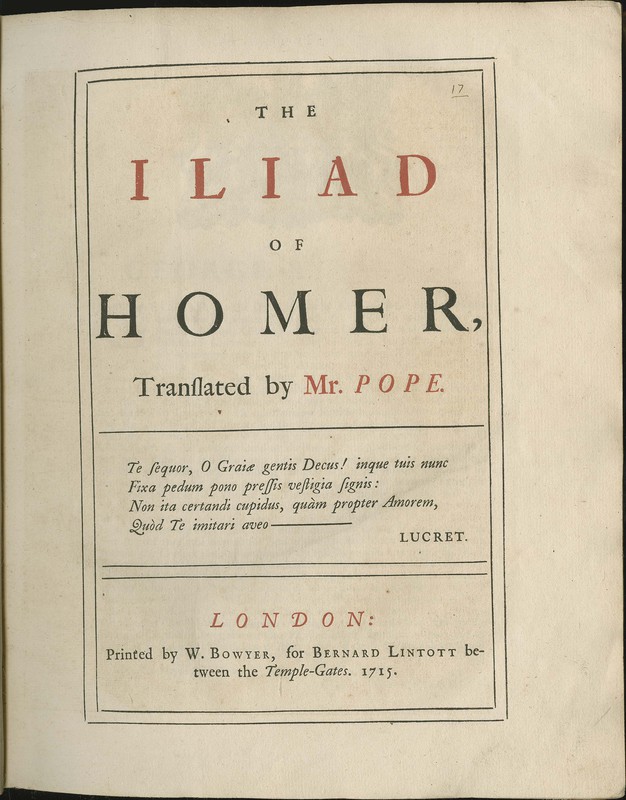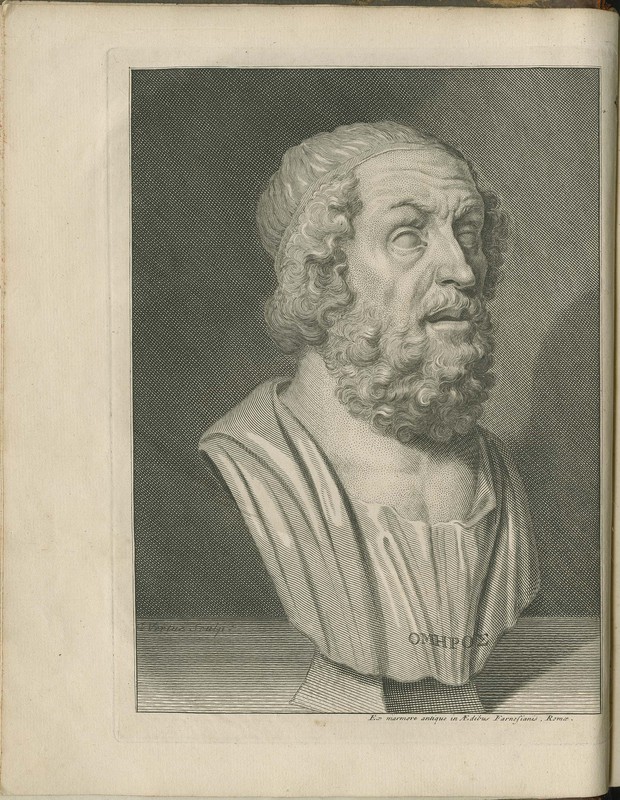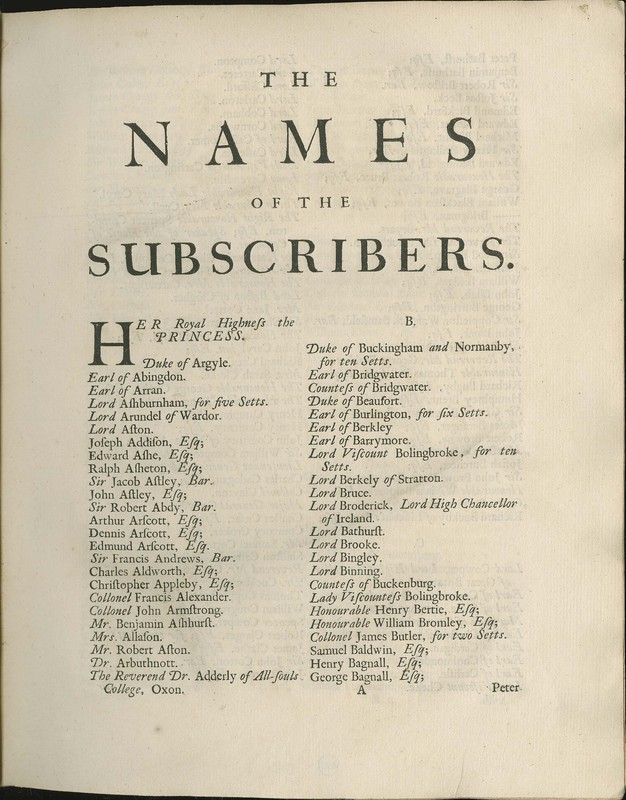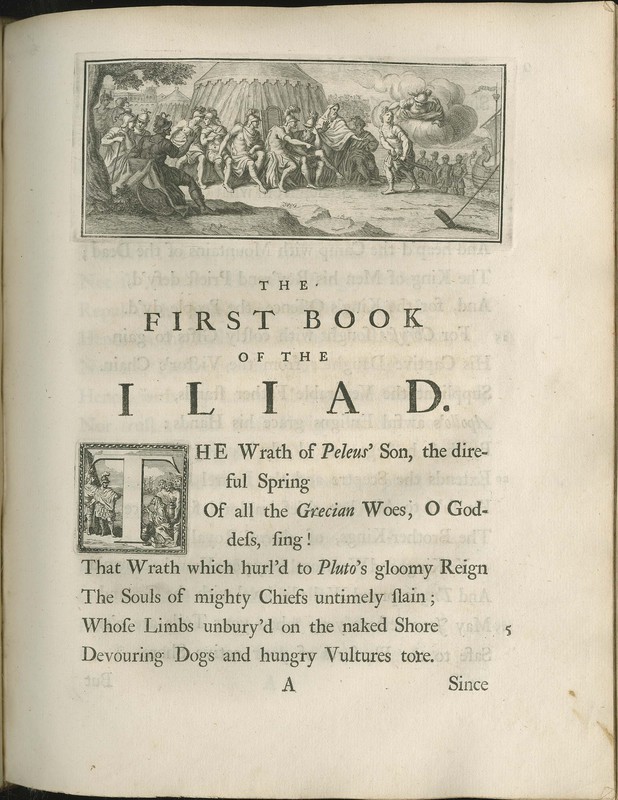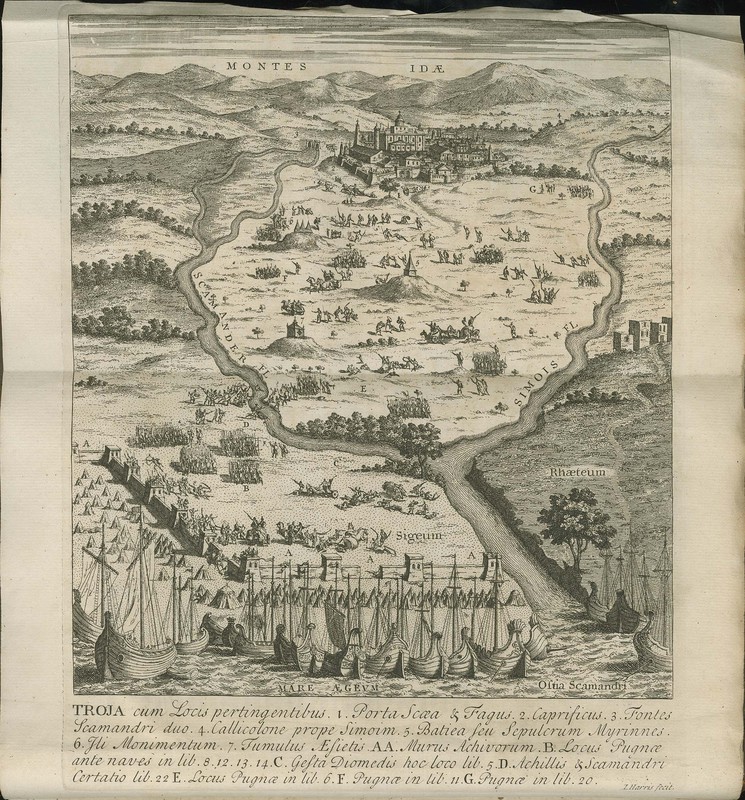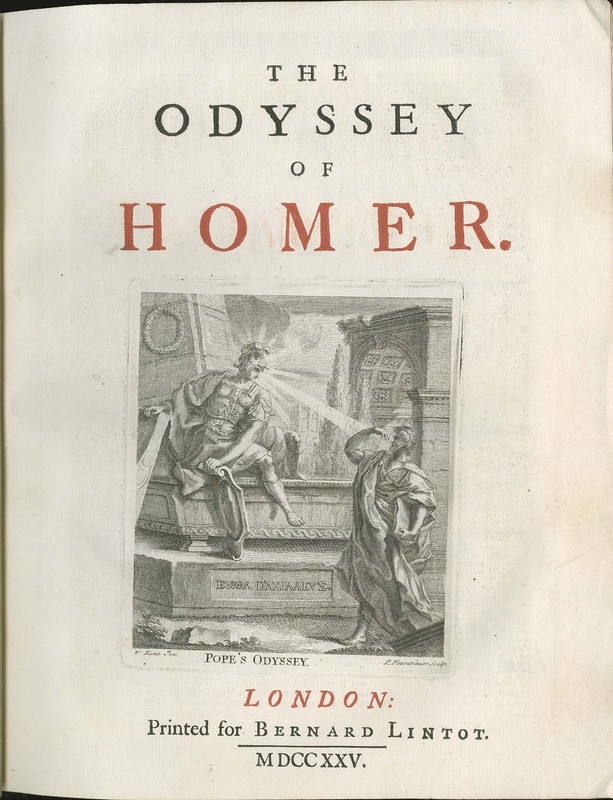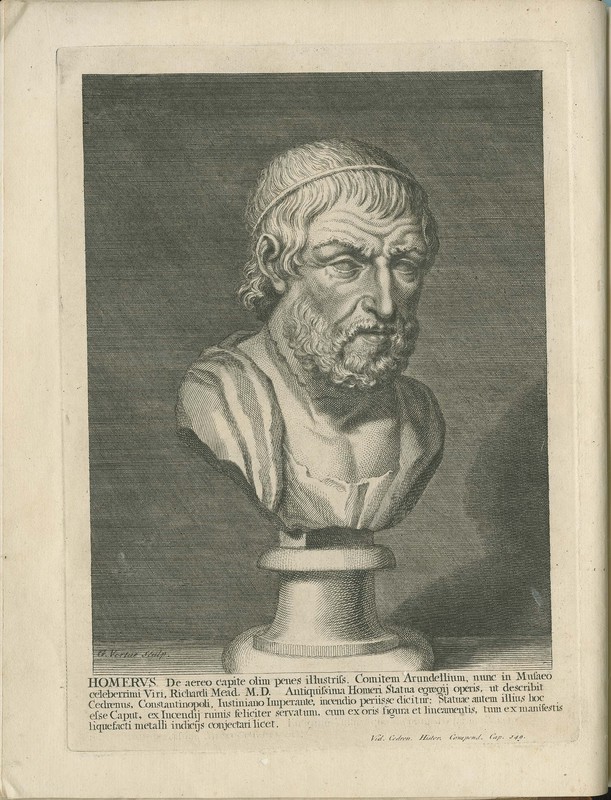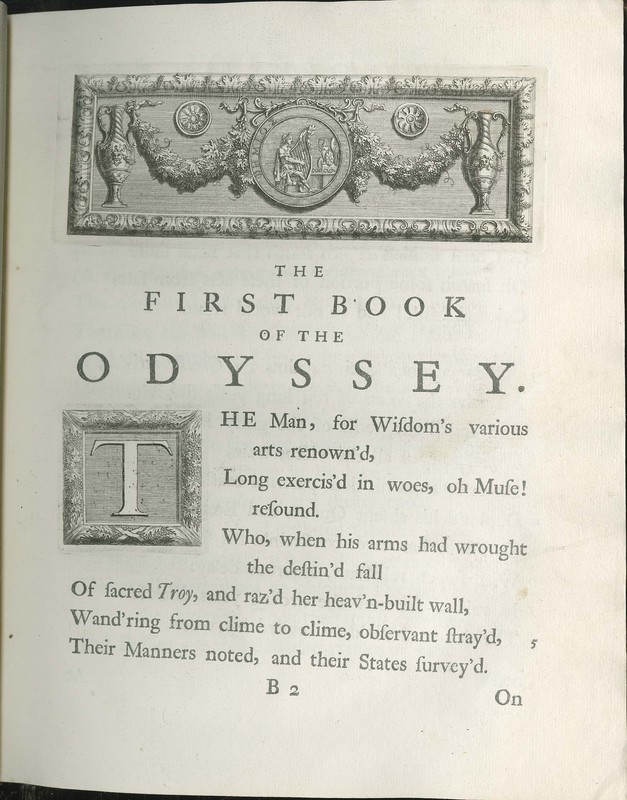Alexander Pope
Alexander Pope (1688–1744) was an outsider in his own society, struggling for acceptance and using his literary talents to succeed. As a Catholic, he was barred from attending English universities or from taking positions reserved for men of his own class, such as naval or military commissions. The publication of Pope’s translations of the Iliad and Odyssey was a carefully planned enterprise that ultimately provided him with financial independence for the rest of his life.
The Iliad
Pope's method of translating Homer was not very different from those of the translators who were not Greek scholars. Like Chapman, Pope read the Greek through Latin translations, preferably in literal versions that somehow replicated the complexities of Greek syntax. Using these word-by-word renderings, Pope could faithfully reconstruct the Greek. Moreover, for the scholarly annotations and the tone of his translation, Pope relied heavily on the French versions by Anne LeFevre Dacier. Along with other authors of the France of Louis XIV, Madame Dacier saw the need to make Homer available to a wider public by stressing the sublime qualities of the poems. In fact, Longinus's treatise De sublimitate, as translated by the French scholar, Nicolas Boileau, was then widely read in Europe and England, including by Pope. Clearly, Pope brought those sublime elements to his English translation, generating reactions of admiration and surprise. Here are the powerful first two verses of the Iliad as translated in Pope's first edition:
The Wrath of Peleus'Son, the direful spring
Of all the Grecian Woes, O Goddess, sing!
The Odyssey
In brief, Pope considerably improved the subscription method that had been so successful for other authors and publishers like John Ogilby. Designed to reduce the risk to capital investment, subscriptions allowed publishers like Bernard Lintot to pay for the production of the first volume, the income from which provided the capital for the second volume, and so on. Moreover, Lintot also agreed to pay Pope 200 guineas for each volume: half in advance and half on delivery of the manuscript. Specifically, the contract stated that Pope would receive ₤1,290 in royalties and ₤4,837 from the sale of the 750 copies of each volume. More importantly, and contrary to the marginal role authors usually had in the publishing process, Pope made important decisions regarding page layout and the selection of typefaces. For the translation of the Odyssey, Pope enlisted two collaborators: Elijah Fenton and William Broome. Pope translated twelve books, Fenton four books, and Broome, eight.
Listening to Pope
Pope translated the Homeric poems into "heroic couplets," which are a type of meter conventionally used for epic and narrative poetry. Essentially, the heroic couplet consists of a sequence of rhyming pairs of iambic pentameter lines. In turn, a pentameter is a succession of five iambic feet, each of which contains an unstressed syllable followed by a stressed syllable. In the following video we will listen to verses 578-643 of the last book of the Iliad in Pope's translation. The verses are dramatically read by Sarah Wingo, graduate student at the School of Information (University of Michigan) and Ralph Williams, Professor Emeritus of English (University of Michigan).
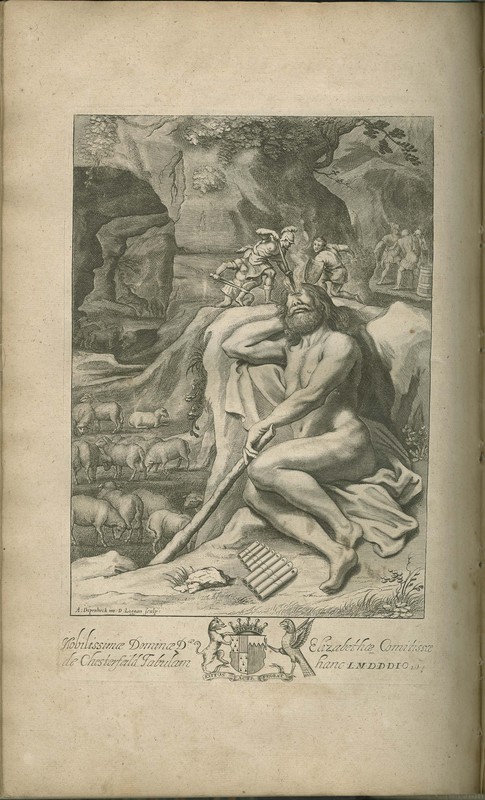
Poetry into Images: John Ogilby

Homer and the Civil War

